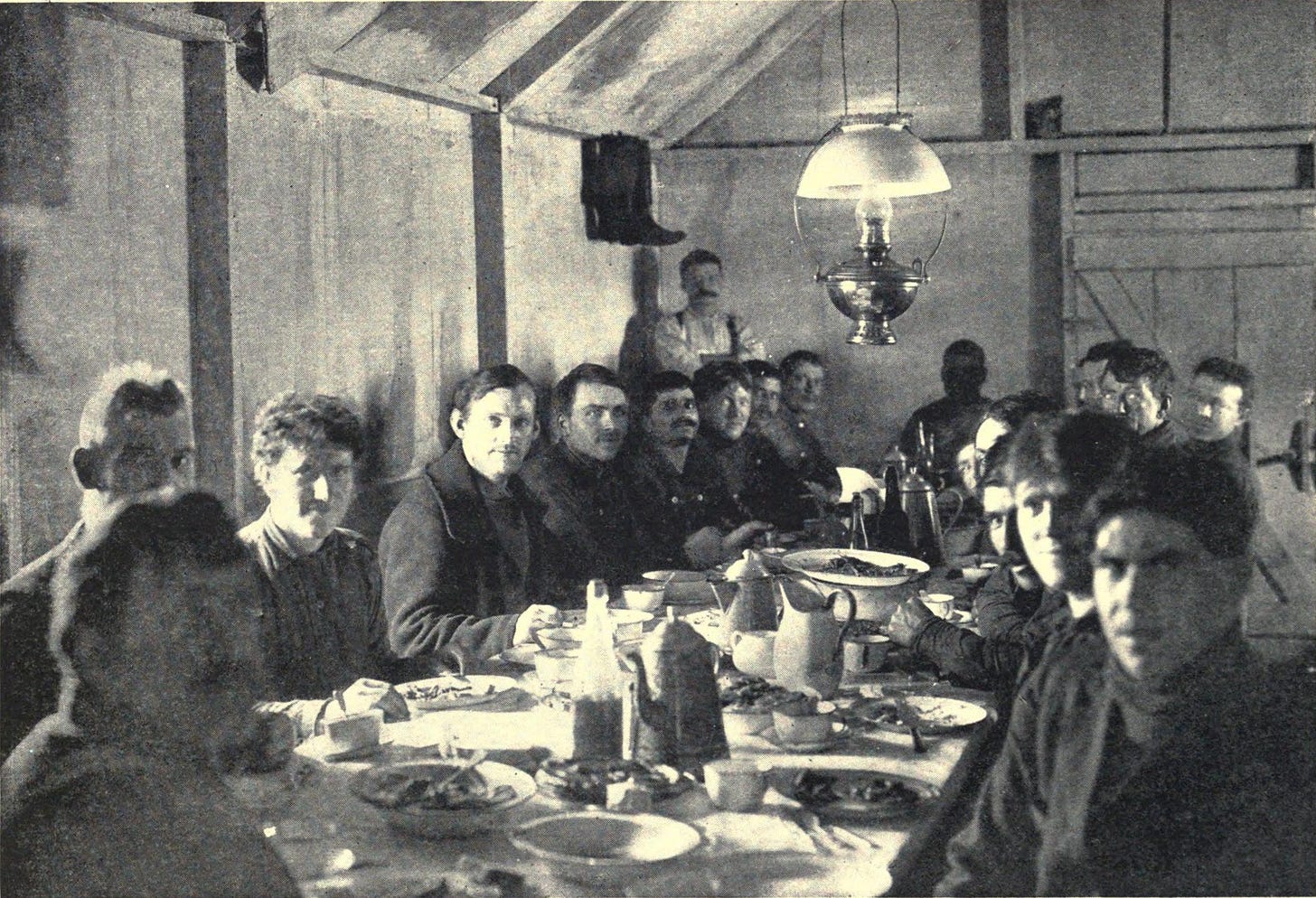Mrs Ambrose and the young detective
A young father-of-two was commissioned by an elderly vicar to investigate his wife, but the detective left her with little more than debts and his nightshirt...
Mrs Ambrose was something of an enigma. She claimed to be the daughter of Everet William Ware, and to have been born Henrietta Diana Ware in 1854. In fact, she was born Diana Ware, in 1851, to a humble sawyer named Walter Ware. She grew up, with several sisters and her mother Matilda, in the village of Newick, near Lewes in Sussex.
Henrietta, as she chose to be known, moved to London and on 15 February 1877, at Marylebone, she married. She was 26 years old. Her spouse was a 56 year old widowed vicar, John Ambrose.
John was born at Copford, near Colchester in Essex, and would live there almost all his life. He had first been married to another Essex native, Elizabeth, who was only three years his junior, but she had died in 1874. The 1891 census stated that Henrietta had a son by John. This was Henry George Ware-Ambrose, born in Germany in 1873 - could he have actually been Henrietta's illegitimate son who then adopted his stepfather's surname, or even the product of an affair between Henrietta and John, while his first wife was still alive? The latter would have been shocking for a clergyman, and it's not clear what the truth was.
Either way, the marriage was not successful, and by 1882, Henrietta had left her husband and returned to London, where she established a boarding house at 25 Gower Street in Bloomsbury. She was an extrovert who established strong friendships with her lodgers; her lifestyle soon caused her estranged husband to become suspicious of her. He employed a private detective to lodge with her and gain her trust.
An early 20th century boarding house
The detective was Robert Walter Bacon, a young native of Essex who now lived in East London with his family. Robert had married his wife, Laura, when he was 18 years old, and by the age of 20, he was a father of two. He seems to have worked as a solicitor's clerk and as an accountant - both common professions for those who also worked as private detectives.
Once engaged by the Reverend Ambrose, Robert adopted the pseudonym of Robert Clay, and moved into Mrs Ambrose's boarding house. The winsome 23 year old soon got Henrietta's trust, and a friendship developed. Robert was clearly duplicitous: on one occasion, he lied to Henrietta that his father (in reality, an Essex plumber) had died and left him a fortune; he then suggested that they drink a bottle of Champagne (purchased by him earlier) together to celebrate his good fortune. Henrietta eagerly agreed.
To what extent their friendship ran is not certain, but Robert would claim in court that they were 'walking out' together - he had persuaded her that they were more than friends. They certainly went on dates together, including to the theatre. However, in mid December 1882, Robert told Henrietta that he needed to go away for a day or two, but that he would be back on Christmas Day for his Christmas dinner. Henrietta therefore kept his room for him - he had, after all, left his nightshirt on his bed. By the following May, however, she realised that her younger man had disappeared with no intention of returning. Instead of nursing her wounds, she sued him for the rent she had lost over the previous five months.
By the time the case was heard at Clerkenwell Police Court, in December 1883, John Ambrose had filed for divorce. It was his solicitors who had originally commissioned Robert Bacon to find evidence of Henrietta's allegedly dissolute habits to use in the divorce. Now there were two cases underway.
In the rent case, Henrietta won, with Bacon ordered to pay her £19 in back rent. However, neither Bacon nor Henrietta came out of the case with their reputations intact - Bacon was seen not only as a boastful character (claiming to one of Henrietta's servants, when they bumped into each other at Euston Square, that he had Henrietta's latch-key and could 'go in just as he pleased') but as a married man who was willing to start a relationship with another married woman as a means to an end. Henrietta, in turn, was seen as rather naive, and also as irresponsible, drinking and socialising with young men.
Although the divorce petition was started, it did not result in a divorce. John Ambrose cited three men as co-respondents - Mr Farmer, Mr DeSouza, and Mr Owen. It seems there was not enough evidence of Henrietta committing adultery with them for the divorce to be granted. The couple remained married until John Ambrose died in 1888. Four years after his death, Henrietta remarried, not to any of the men she was accused of having relationships with, but with one Alexander Nisbet.
Henrietta appears to have had two properties - one at 25 Gower Street, and the other at 14 Keppel Street. Robert Bacon had stayed primarily at the former, and Henrietta gave this as her address when she married Nisbet. However, Nisbet gave his address as 14 Keppel Street at the time of the marriage, just as Henrietta had been at her 14 Keppel Street boarding house at the time of the 1891 census. Had he, too, been one of her boarders?! The couple stayed together, and in 1911, were still living at 25 Gower Street, where Henrietta was still running her boarding house.
Robert Bacon's private detective career was shortlived. By 1891, he was working as an accountant, and he died prematurely, in 1897, at the age of just 35.




